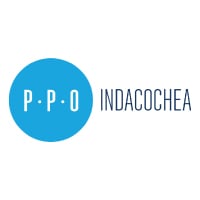

Legal counsel | Clínica Metropolitana de las Americas



David Chavez Gonzales?
Legal counsel | Clínica Metropolitana de las Americas
Team size: 3 lawyers and 2 interns.
How do you approach managing legal aspects during periods of instability or crises, and how does your legal strategy align with the broader business strategy to ensure the organisation’s resilience? ?
In the healthcare sector, particularly in a private clinic, legal management during periods of crisis or instability requires a strategic, preventive approach that’s aligned with business goals. In my experience, I’ve tackled these challenges by prioritising the prevention of legal risks, the protection of institutional interests, and operational continuity, all while keeping patient trust and the sustainability of medical services in mind.
During complex situations, I coordinate closely with administrative, medical, and financial departments to ensure regulatory compliance. The private health sector in Bolivia has legal gaps and ambiguities, so it’s essential to correctly interpret regulations and apply sound legal criteria that protect the clinic from potential liabilities. This coordination with management allows for informed, rapid decisions that are adjusted to the operational reality, preventing conflicts that could escalate to legal proceedings or damage the clinic’s reputation.
One of the cornerstones of my legal strategy is the protection of key contracts, especially with medical supply providers. In crisis situations, I have led contract renegotiation processes, seeking more sustainable terms without compromising the quality of service. This work involves not only a legal review, but also an understanding of the commercial and operational impact of each decision, ensuring the clinic maintains its capacity to respond to the demand for care.
Additionally, I have intervened in employee termination processes, which are often complex due to the coexistence of regulations applicable to public officials and the General Labour Law. In these cases, my approach has been to ensure that current legislation is applied correctly, defending the clinic’s interests and avoiding unnecessary penalties or lawsuits. This legal management is aligned with preserving a stable, fair, and efficient work environment.
Another key component has been the creation of internal compliance policies, both for staff and for managing the collection flow. In times of economic instability, the increase in accounts receivable represents a significant financial risk. Therefore, I have developed procedures that allow for the analysis of each case before initiating formal actions, seeking conciliatory solutions that protect the patient relationship and ensure the recovery of resources.
In summary, my legal strategy during periods of crisis is based on anticipation, managerial coordination, and alignment with business objectives. Institutional resilience depends not only on medical or financial capabilities, but also on solid ethical and strategic legal management that allows the clinic to adapt, protect itself, and continue to provide quality services in any scenario.
What are the main cases or transactions that you have been involved in recently? ?
As a legal professional at a clinic, I’ve been involved in several key processes. This includes contract renegotiation with suppliers: I participated in renegotiating contracts with medical supply providers to optimise the clinic’s financial resources without compromising service quality. This required a detailed analysis of terms and strong negotiation skills with the commercial, finance, and medical departments.
I also manage employee separations: I handled employee termination processes fairly and legally. This role was crucial for preventing conflicts and lawsuits, especially in an environment with a mix of public and private sector regulations.
I have been involved in developing internal policies and procedures. I worked on creating staff policies to strengthen the organisational culture, ensure regulatory compliance, and prevent legal or labor disputes.
I helped design procedures to improve the collections process. My strategy combines legal analysis with an understanding of patients’ financial situations, seeking mutually beneficial solutions in coordination with other clinic departments.
Overall, my experience focuses on prevention, strategic analysis, and finding legal solutions that boost the clinic’s efficiency and regulatory compliance.
How do you prioritise diversity and inclusion within your legal department, and what initiatives have you implemented to foster a more inclusive and equitable work environment? ?
Our legal team prioritises inclusivity, including gender equity, and highly values a proactive attitude when selecting staff. Beyond academic credentials, we look for empathy, a service-oriented mindset, and a willingness to learn, given our unique healthcare environment. For internships, we prioritise initiative and commitment over grades or the university attended, believing everyone deserves a chance if they show a positive attitude.
We’ve implemented weekly meetings to review tasks and share knowledge. These gatherings, which include all team members, serve as a space for reflection, continuous improvement, and collaboration. Interns contribute new ideas and technology, while more experienced members offer guidance and share their expertise. This collaborative approach fosters a continuous learning environment, reinforcing the team’s commitment to holistic development and diversity.
What do you see as the major legal challenges for businesses in Bolivia over the next five years, and how are you preparing to address them? ?
Over the next five years, businesses in Bolivia will face significant legal challenges, including tax and regulatory complexity that makes operations and investment difficult. Another critical issue is the lack of a Personal Data Protection Law, which exposes companies to legal vulnerabilities and limits their ability to integrate into international markets. Additionally, the absence of robust cybersecurity regulations forces companies to invest in expensive protection technologies and deal with data loss.
To address these challenges, my strategy is built on three pillars: legal prevention, technological adaptation, and strategic alignment. My work focuses on creating policies for regulatory compliance, promoting digital tools for legal traceability, and coordinating with other departments to ensure that legal decisions support the institution’s sustainability.
By staying updated on global legal trends and participating in training on digital transformation and compliance, I aim to mitigate risks and ensure that the legal department not only protects the company, but also actively contributes to its growth in an increasingly demanding environment.